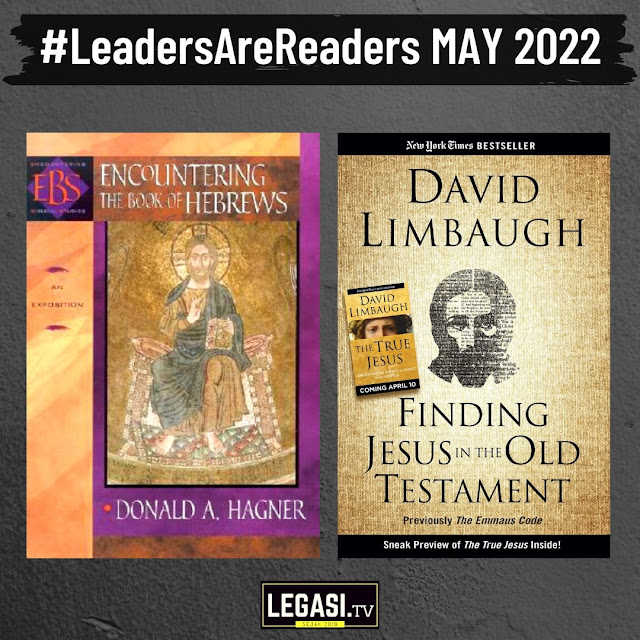After the resurrection, Jesus appeared to two of His disciples on the road to Emmaus. This is one of the many post-resurrection appearances. The Scriptures say that “God kept them from recognizing him” (Luke 24:16). Interesting. As they were walking, the two disciples talked about “the things that happened to Jesus, the man from Nazareth” (v.19) to… Jesus. Interesting indeed. I’m not sure whether they believe everything they heard about Jesus was true or not, for sure, they heard that “Jesus is alive!” (v.23). Then, imagine this, Jesus, a stranger to them said strongly, “You foolish people! You find it so hard to believe all that the prophets wrote in the Scriptures. Wasn’t it clearly predicted that the Messiah would have to suffer all these things before entering his glory?” (v.26). There and then, Jesus did an overview Bible Study with them. He “took them through the writings of Moses and all the prophets, explaining from ALL the Scriptures the things concerning himself” (v.27). read the rest of the passage. The good ending is this: “Suddenly, their eyes were opened, and they recognized him” (v.31).
I love this sacred narrative. We can know about Jesus without really knowing Jesus. We can study the Scriptures diligently without recognizing Jesus in them (In John 5:39, Jesus said the Scriptures “point to me!”). And we can outline facts about what happened to Jesus from A to Z without really believing what we said. The two disciples were foolish and so are we if we don’t have faith to see Jesus the Messiah as He is. By God’s grace, He has opened my eyes to see and recognized Jesus in the pages of the Scriptures (This simply means I was foolish then and if I don’t see it now, I’m being foolish again). Now, this is both a supernatural and natural phenomenon. We can’t see and believe if God doesn’t open and make known to us the truth first. So we need to pray, “Open my eyes that I may see wonderful things in your law [or the Scriptures]” (Psalm 119:18, bracket mine). Yet, we can’t see and believe if we don’t read and study the Scriptures. The supernatural and natural must go hand in hand. For example, in Isaiah 32 verses 1 and 3, “Look, a righteous king is coming! [So we must look]… Then everyone who has eyes will be able to see the truth” [But God is the One who enables us to see].
I have no advice for the supernatural since it is beyond our willpower to do so except to pray and ask God the Holy Spirit with humility. But I do have advice for the natural ways to see Jesus in “ALL the Scripture.” First, read the Scriptures a.k.a. the written Word of God a.k.a. the Bible prayerfully. This is essential and all else is subordinate! Secondly, join sound teaching and Jesus-centered Bible Study (if you want to join #DugDownDeep let me know). And thirdly, read books that can supplement and instruct you deeper into the Scriptures. Good faithful pastors, preachers, teachers, and writers are God’s gifts to us for the growth of His church. Two books that I finished reading in May 2022 that are very instrumental in helping me to see and read the Scriptures with Jesus at the center anew are: 1) Finding Jesus In the Old Testament (2015, 2017) by David Limbaugh. He wrote, “Just as the Old Testament is foundational to the New, our basic understanding of the Old Testament is crucial to our comprehension of how Christ dominates its pages”; and 2) Encountering the Book of Hebrews: An Exposition (2002) by Donald A. Hagner. The Book of Hebrews doesn’t make sense without the Old Testament and the Old Testament - particularly the Law, the sacrificial ritual, the covenants, and typologies - doesn’t make sense without it all being fulfilled by Jesus the Messiah as explained very beautifully in the Book of Hebrews. Blessed!
#ServeToLead #PreachTheWord #LetsMakeReadingCoolAgain #JesusInAllofScripture
To read my other monthly articles on reading, CLICK HERE
LEGASI.tv Media: https://linktr.ee/LEGASI.tv
THINK BIG. START SMALL. GO DEEP.


















